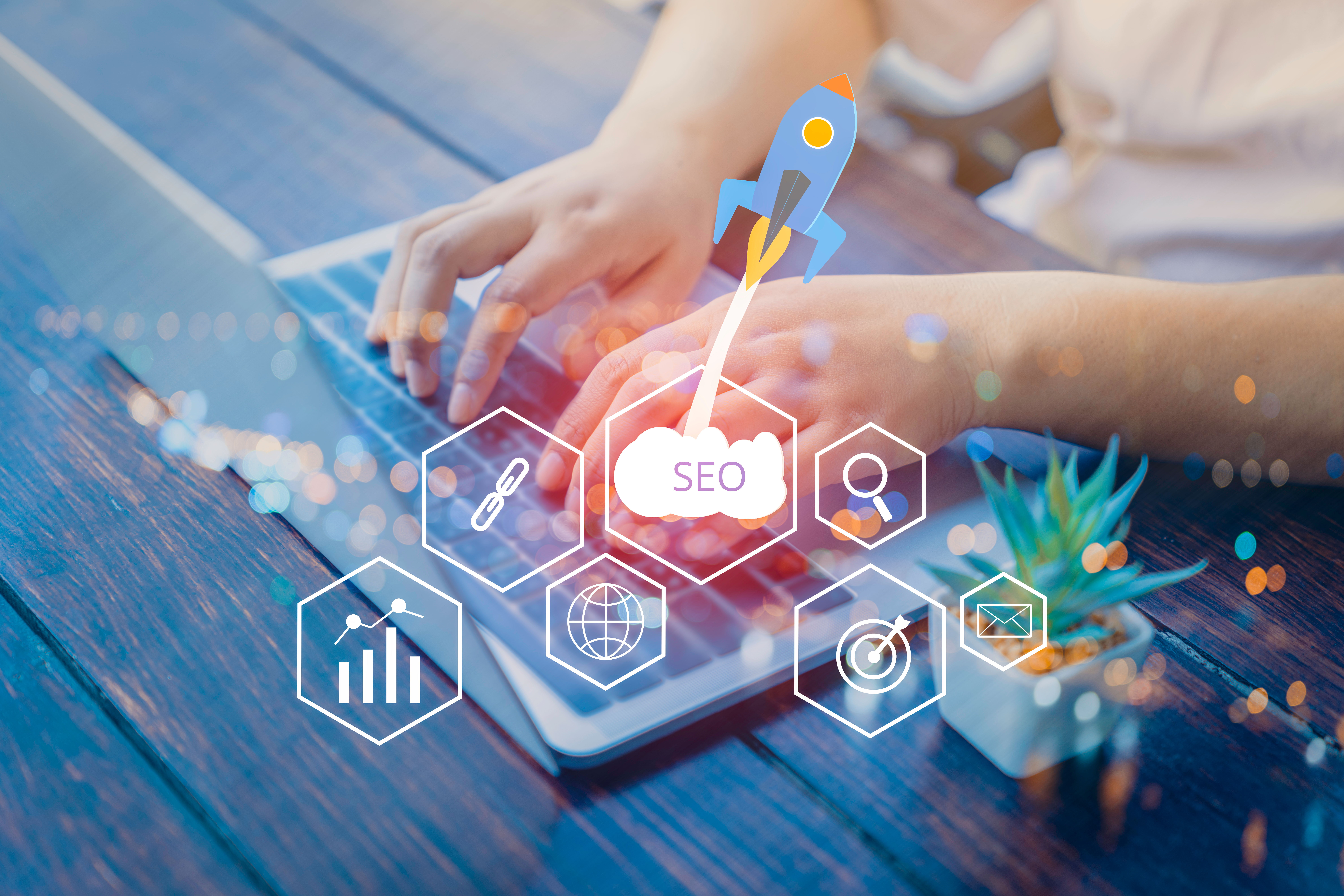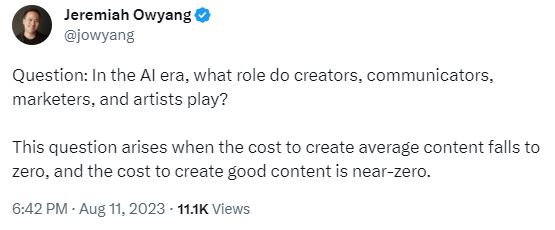
Should businesses rely on AI for SEO optimization? (Image – Shutterstock)
Building a relationship between AI and SEO
|
Getting your Trinity Audio player ready... |
When it comes to Search Engine Optimization (SEO), most brands typically look at best practices in implementing them. While artificial intelligence (AI) has the potential to generate content that can be highly ranked in SEO, most businesses are still unsure of how they can fully utilize this to their advantage.
Their main problem is understanding how they can connect AI and SEO. Since ChatGPT debuted, more employees have used the platform and other generative AI tools to prepare content for work. This includes emails, reports, and even generating ideas for marketing campaigns. Despite the concerns about relying too much on generative AI, its capability to complete tasks much faster is an advantage that businesses want to use.
When it comes to branding, using AI to generate highly-ranked SEO content sounds like a straightforward task. However, the reality is the entire process can be rather challenging if businesses do not have a proper plan in place.
The first thing businesses need to realize is that when it comes to generating SEO content with AI, they need to know what their customers want and who their target audience is.
And this is where the power lies with the customers. When a customer uses a search engine like Google, Bing, or any other platform, the results displayed are based not only on their query but also on their preferences and demographics.
For example, a user is searching for reviews of a new mobile phone that has been released. Before the search engine provides the reviews, the first two or three results would typically be paid advertisements by the mobile phone brand or telco company promoting the product. Only after that do the organic search results, which are also based on the location of the query, appear.
A phone distributor selling the mobile phone might have done a review with an AI tool, meeting all SEO requirements. Based on the originality of the report, it would appear as the first option after the paid content. This is where most businesses want to be.

Is AI about to change SEO? (Image – Shutterstock)
Search engines: AI and SEO
According to Manuel Denoual, Managing Director at NP Digital Singapore, “the essential role of search has made it indispensable to digital marketing, an industry that is being disrupted by generative AI applications for the better.”
In an article published by e27, Denoual acknowledges that brands worldwide use SEO and search engine marketing (SEM) with pay-per-click (PPC) advertising to generate traffic, encourage product discovery, drive conversions, and more.
“The integration of generative AI with search is poised to elevate SEO and create new playing fields for SEM — particularly in the diverse and digitally-first APAC region. As industry leaders like Microsoft’s Bing and Google lay the groundwork for this new paradigm, the time for brands to educate themselves on the inherent opportunities of generative search is now,” he said.
Simply put, just as businesses are using AI to produce high-ranking SEO content, search engines will also use AI to provide better search results to users. This is already demonstrated by Microsoft Bing and Google Search.
What can businesses do?
For Alex Bider, the CEO and Senior Internet Marketing Consultant at 2Marketing.com, the advancements in AI technology also promise to enhance user experience, predictive SEO, voice search optimization, and visual search optimization, further transforming how businesses optimize their online presence.
Bidder, who is also a Forbes Councils Member, states that for businesses to stay ahead of the curve, they must embrace the changes and adapt their SEO strategies to leverage the benefits that AI brings.
“By harnessing the power of AI, businesses can ensure they remain competitive in the ever-evolving digital landscape and continue to deliver a seamless, engaging experience for their users. As we move forward, the integration of AI in SEO will become increasingly important, shaping the future of search and online visibility,” explained Bidder.
Interestingly, the situation can be different in Asia. As search engines like Google and Bing are predominantly in English. However, local search engines like Baidu in China, Naver in South Korea, and Yahoo.jp in Japan can also provide businesses the opportunity needed in their respective regions.
Going back to the example of the mobile phone review, if the phone distributor is a Korean company, it can also improve its search ranking by using AI to create SEO content for the local market. This means the site may not be ranked top in Google Search but instead could find itself highly rated in Naver.
A shift from SEO to AI engine optimization
Here’s where it gets exciting. As businesses look to leverage AI to generate SEO content, Bill Gates feels they should be doing otherwise. According to a report by CNBC, in an interview during a Goldman Sachs and SV Angel event on AI, Gates mentioned that AI could eventually kill off Google Search and even Amazon.
Gates believes it’s only a matter of time before society is introduced to a personal digital agent that can perform specific tasks for people. He feels that a future AI personal assistant will be so profound that the first company to develop it will have a leg up on competitors.
“Whoever wins the personal agent, that’s the big thing because you will never go to a search site again, you will never go to a productivity site, you’ll never go to Amazon again,” he said.

A tweet on AI optimized SEO
Meanwhile, Jeremiah Owyang, an advisor to Fortune 500 on Digital Business and a global speaker, explains that the evolution of AI is not just an addition to the marketing toolset as it is set to redefine the entire landscape of search and e-commerce. As AI matures and begins to guide human buying decisions, society is staring at a radical transformation of the marketing funnel.
“Adoption of AI will vary across different industries. The B2C sectors will likely experience the impacts more swiftly, but longer B2B sales cycles will change gradually. I expect higher human inputs in longer B2B marketing and sales processes, but AI agents will still be influential.
As we approach a future where AI’s influence is ever-growing, the call for new software solutions that enable marketers to influence AI agents becomes louder. The norms of SEO are being reinvented to cater to AI’s training processes, signaling a substantial shift in digital marketing practices,” writes Owyang.
For Owyang, marketers have started embracing AI, utilizing machine learning to analyze and predict customer behavior and experimenting with generative AI for content and image creation. This is AI engine optimization.
“As we stand on the brink of this seismic shift, the call to action for marketers is clear: We must ready ourselves to not only influence human decision-making but also shape AI behaviors.”
READ MORE
- Safer Automation: How Sophic and Firmus Succeeded in Malaysia with MDEC’s Support
- Privilege granted, not gained: Intelligent authorization for enhanced infrastructure productivity
- Low-Code produces the Proof-of-Possibilities
- New Wearables Enable Staff to Work Faster and Safer
- Experts weigh in on Oracle’s departure from adland


